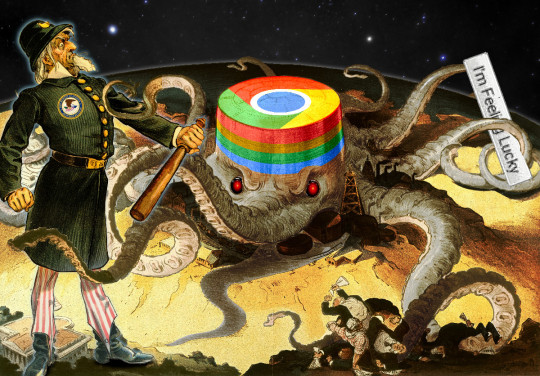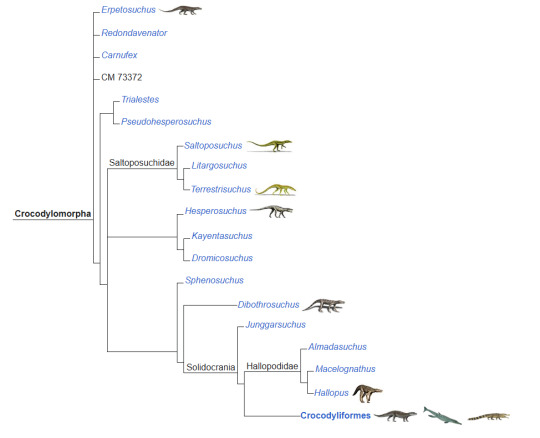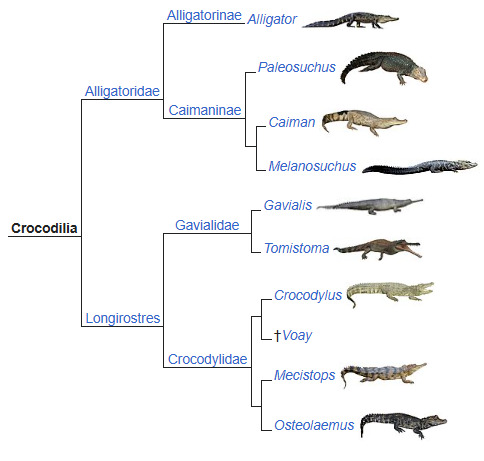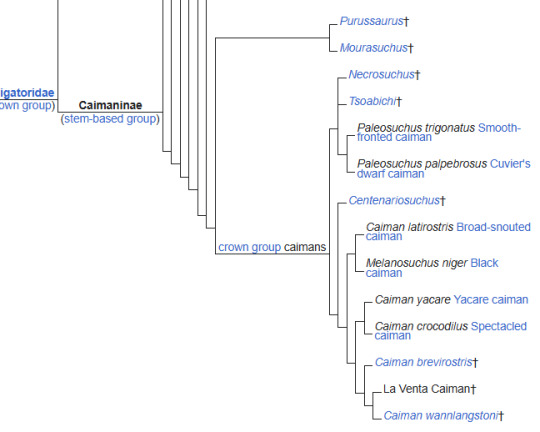#p: epoch
Explore tagged Tumblr posts
Text

CONGRATS TO 1K POOKIE!!! Here officially is my entry @xepphir
#xepphirdtiys#undertale au#codex-nova#epoch#this was a lot of fun to draw#Damn I didn’t know I could render#Very proud of this ngl#Hope you like it :P#undertale#anitadraws#undertale art#dtiys#dtiyschallenge#dtiys entry#artists on tumblr
47 notes
·
View notes
Text
The Google antitrust remedy should extinguish surveillance, not democratize it

I'm coming to DEFCON! On FRIDAY (Aug 9), I'm emceeing the EFF POKER TOURNAMENT (noon at the Horseshoe Poker Room), and appearing on the BRICKED AND ABANDONED panel (5PM, LVCC - L1 - HW1–11–01). On SATURDAY (Aug 10), I'm giving a keynote called "DISENSHITTIFY OR DIE! How hackers can seize the means of computation and build a new, good internet that is hardened against our asshole bosses' insatiable horniness for enshittification" (noon, LVCC - L1 - HW1–11–01).

If you are even slightly plugged into the doings and goings on in this tired old world of ours, then you have heard that Google has lost its antitrust case against the DOJ Antitrust Division, and is now an official, no-foolin', convicted monopolist.
This is huge. Epochal. The DOJ, under the leadership of the fire-breathing trustbuster Jonathan Kanter, has done something that was inconceivable four years ago when he was appointed. On Kanter's first day on the job as head of the Antitrust Division, he addressed his gathered prosecutors and asked them to raise their hands if they'd never lost a case.
It was a canny trap. As the proud, victorious DOJ lawyers thrust their arms into the air, Kanter quoted James Comey, who did the same thing on his first day on the job as DA for the Southern District of New York: "You people are the chickenshit club." A federal prosecutor who never loses a case is a prosecutor who only goes after easy targets, and leave the worst offenders (who can mount a serious defense) unscathed.
Under Kanter, the Antitrust Division has been anything but a Chickenshit Club. They've gone after the biggest game, the hardest targets, and with Google, they bagged the hardest target of all.
Again: this is huge:
https://www.thebignewsletter.com/p/boom-judge-rules-google-is-a-monopolist
But also: this is just the start.
Now that Google is convicted, the court needs to decide what to do about it. Courts have lots of leeway when it comes to addressing a finding of lawbreaking. They can impose "conduct remedies" ("don't do that anymore"). These are generally considered weaksauce, because they're hard to administer. When you tell a company like Google to stop doing something, you need to expend a lot of energy to make sure they're following orders. Conduct remedies are as much a punishment for the government (which has to spend millions closely observing the company to ensure compliance) as they are for the firms involved.
But the court could also order Google to stop doing certain things. For example, since the ruling finds that Google illegally maintained its monopoly by paying other entities – Apple, Mozilla, Samsung, AT&T, etc – to be the default search, the court could order them to stop doing that. At the very least, that's a lot easier to monitor.
The big guns, though are the structural remedies. The court could order Google to sell off parts of its business, like its ad-tech stack, through which it represents both buyers and sellers in a marketplace it owns, and with whom it competes as a buyer and a seller. There's already proposed, bipartisan legislation to do this (how bipartisan? Its two main co-sponsors are Ted Cruz and Elizabeth Warren!):
https://pluralistic.net/2023/05/25/structural-separation/#america-act
All of these things, and more, are on the table:
https://www.wired.com/story/google-search-monopoly-judge-amit-mehta-options/
We'll get a better sense of what the judge is likely to order in the fall, but the case could drag out for quite some time, as Google appeals the verdict, then tries for the Supreme Court, then appeals the remedy, and so on and so on. Dragging things out in the hopes of running out the clock is a time-honored tradition in tech antitrust. IBM dragged out its antitrust appeals for 12 years, from 1970 to 1982 (they called it "Antitrust's Vietnam"). This is an expensive gambit: IBM outspent the entire DOJ Antitrust Division for 12 consecutive years, hiring more lawyers to fight the DOJ than the DOJ employed to run all of its antitrust enforcement, nationwide. But it worked. IBM hung in there until Reagan got elected and ordered his AG to drop the case.
This is the same trick Microsoft pulled in the nineties. The case went to trial in 1998, and Microsoft lost in 1999. They appealed, and dragged out the proceedings until GW Bush stole the presidency in 2000 and dropped the case in 2001.
I am 100% certain that there are lawyers at Google thinking about this: "OK, say we put a few hundred million behind Trump-affiliated PACs, wait until he's president, have a little meeting with Attorney General Andrew Tate, and convince him to drop the case. Worked for IBM, worked for Microsoft, it'll work for us. And it'll be a bargain."
That's one way things could go wrong, but it's hardly the only way. In his ruling, Judge Mehta rejected the DOJ's argument that in illegally creating and maintaining its monopoly, Google harmed its users' privacy by foreclosing on the possibility of a rival that didn't rely on commercial surveillance.
The judge repeats some of the most cherished and absurd canards of the marketing industry, like the idea that people actually like advertisements, provided that they're relevant, so spying on people is actually doing them a favor by making it easier to target the right ads to them.
First of all, this is just obvious self-serving rubbish that the advertising industry has been repeating since the days when it was waging a massive campaign against the TV remote on the grounds that people would "steal" TV by changing the channel when the ads came on. If "relevant" advertising was so great, then no one would reach for the remote – or better still, they'd change the channel when the show came back on, looking for more ads. People don't like advertising. And they hate "relevant" advertising that targets their private behaviors and views. They find it creepy.
Remember when Apple offered users a one-click opt-out from Facebook spying, the most sophisticated commercial surveillance system in human history, whose entire purpose was to deliver "relevant" advertising? More than 96% of Apple's customers opted out of surveillance. Even the most Hayek-pilled economist has to admit that this is a a hell of a "revealed preference." People don't want "relevant" advertising. Period.
The judge's credulous repetition of this obvious nonsense is doubly disturbing in light of the nature of the monopoly charge against Google – that the company had monopolized the advertising market.
Don't get me wrong: Google has monopolized the advertising market. They operate a "full stack" ad-tech shop. By controlling the tools that sellers and buyers use, and the marketplace where they use them, Google steals billions from advertisers and publishers. And that's before you factor in Jedi Blue, the illegal collusive arrangement the company has with Facebook, by which they carved up the market to increase their profits, gouge advertisers, starve publishers, and keep out smaller rivals:
https://en.wikipedia.org/wiki/Jedi_Blue
One effect of Google's monopoly power is a global privacy crisis. In regions with strong privacy laws (like the EU), Google uses flags of convenience (looking at you, Ireland) to break the law with impunity:
https://pluralistic.net/2023/05/15/finnegans-snooze/#dirty-old-town
In the rest of the world, Google works with other members of the surveillance cartel to prevent the passage of privacy laws. That's why the USA hasn't had a new federal privacy law since 1988, when Congress acted to ban video-store clerks from telling newspaper reporters about the VHS cassettes you took home:
https://en.wikipedia.org/wiki/Video_Privacy_Protection_Act
The lack of privacy law and privacy enforcement means that Google can inflict untold privacy harms on billions of people around the world. Everything we do, everywhere we go online and offline, every relationship we have, everything we buy and say and do – it's all collected and stored and mined and used against us. The immediate harm here is the haunting sense that you are always under observation, a violation of your fundamental human rights that prevents you from ever being your authentic self:
https://www.theguardian.com/technology/blog/2013/jun/14/nsa-prism
The harms of surveillance aren't merely spiritual and psychological – they're material and immediate. The commercial surveillance industry provides the raw feedstock for a parade of horribles, from stalkers and bounty hunters turning up on their targets' front doors to cops rounding up demonstrators with location data from their phones to identity thieves tricking their marks by using leaked or purchased private information as convincers:
https://pluralistic.net/2023/12/06/privacy-first/#but-not-just-privacy
The problem with Google's monopolization of the surveillance business model is that they're spying on us. But for a certain kind of competition wonk, the problem is that Google is monopolizing the violation of our human rights, and we need to use competition law to "democratize" commercial surveillance.
This is deeply perverse, but it represents a central split in competition theory. Some trustbusters fetishize competition for its own sake, on the theory that it makes companies better and more efficient. But there are some things we don't want companies to be better at, like violating our human rights. We want to ban human rights violations, not improve them.
For other trustbusters – like me – the point of competition enforcement isn't merely to make companies offer better products, it's to make companies small enough to hold account through the enforcement of democratic laws. I want to break – and break up – Google because I want to end its ability to bigfoot privacy law so that we can finally root out the cancer of commercial surveillance. I don't want to make Google smaller so that other surveillance companies can get in on the game.
There is a real danger that this could emerge from this decision, and that's a danger we need to guard against. Last month, Google shocked the technical world by announcing that it would not follow through on its years-long promise to kill third-party cookies, one of the most pernicious and dangerous tools of commercial surveillance. The reason for this volte-face appears to be concern that the EU would view killing third-party cookies as anticompetitive, since Google intended to maintain commercial surveillance using its Orwellian "Privacy Sandbox" technology in Chrome, with the effect that everyone except Google would find it harder to spy on us as we used the internet:
https://www.thebignewsletter.com/p/googles-trail-of-crumbs
It's true! This is anticompetitive. But the answer isn't to preserve the universal power of tech companies large and small to violate our human rights – it's to ban everyone, especially Google, from spying on us!
This current in competition law is still on the fringe, but the Google case – which finds the company illegally dominating surveillance advertising, but rejects the idea that surveillance is itself a harm – offers an opportunity for this bad idea to go from the fringe to the center.
If that happens, look out.
Take "attribution," an obscure bit of ad-tech jargon disguising a jaw-droppingly terrible practice. "Attribution" is when an ad-tech company shows you an ad, and then follows you everywhere you go, monitoring everything you do, to determine whether the ad convinced you to buy something. I mean that literally: they're combining location data generated by your phone and captured by Bluetooth and wifi receivers with data from your credit card to follow you everywhere and log everything, so that they can prove to a merchant that you bought something.
This is unspeakably grotesque. It should be illegal. In many parts of the world, it is illegal, but it is so lucrative that monopolists like Google can buy off the enforcers and get away with it. What's more, only the very largest corporations have the resources to surveil you so closely and invasively that they can perform this "service."
But again, some competition wonks look at this situation and say, "Well, that's not right, we need to make sure that everyone can do attribution." This was a (completely mad) premise in the (otherwise very good) 2020 Competition and Markets Authority market-study on "Online platforms and digital advertising":
https://assets.publishing.service.gov.uk/media/5fa557668fa8f5788db46efc/Final_report_Digital_ALT_TEXT.pdf
This (again, otherwise sensible) document veers completely off the rails whenever the subject of attribution comes up. At one point, the authors propose that the law should allow corporations to spy on people who opt out of commercial surveillance, provided that this spying is undertaken for the sole purpose of attribution.
But it gets even worse: by the end of the document, the authors propose a "user ID intervention" to give every Briton a permanent, government-issued advertising identifier to make it easier for smaller companies to do attribution.
Look, I understand why advertisers like attribution and are willing to preferentially take their business to companies that can perform it. But the fact that merchants want to be able to peer into every corner of our lives to figure out how well their ads are performing is no basis for permitting them to do so – much less intervening in the market to make it even easier so more commercial snoops can get their noses in our business!
This is an idea that keeps popping up, like in this editorial by a UK lawyer, where he proposes fixing "Google's dominance of online advertising" by making it possible for everyone to track us using the commercial surveillance identifiers created and monopolized by the ad-tech duopoly and the mobile tech duopoly:
https://www.thesling.org/what-to-do-about-googles-dominance-of-online-advertising/
Those companies are doing something rotten. In dominating ads, they have stolen billions from publishers and advertisers. Then they used those billions to capture our democratic process and ensure that our human rights weren't being defended as they plundered our private data and put us in harm's way.
Advertising will adapt. The marketing bros know this is coming. They're already discussing how to live in a world where you can't measure clicks and you can't attribute actions (e.g. the world from the first advertisements up until the early 2000s):
https://sparktoro.com/blog/attribution-is-dying-clicks-are-dying-marketing-is-going-back-to-the-20th-century/
An equitable solution to Google's monopoly will not run though our right to privacy. We don't solve the Google monopoly by creating competition in surveillance. The reason to get rid of Google's monopoly is to make it easier to end surveillance.

If you'd like an essay-formatted version of this post to read or share, here's a link to it on pluralistic.net, my surveillance-free, ad-free, tracker-free blog:
https://pluralistic.net/2024/08/07/revealed-preferences/#extinguish-v-improve

Image: Cryteria (modified) https://commons.wikimedia.org/wiki/File:HAL9000.svg
CC BY 3.0 https://creativecommons.org/licenses/by/3.0/deed.en
#pluralistic#google#antitrust#monopolies#remedies#ad-tech#competition#power#doj v google#attribution
1K notes
·
View notes
Note
Kid reader/dokucha stealing coats/capes, like shanks cape, doflamingos, corazons, or kids fluffy ass jackets, laws coat that he had during wano etc.
woah id thought there would be more characters with capes bit i can only think of shanks- everyone else has just giant coats that none of them wear correctly except for the fluffy coats that doffy, cora and kid has (tho he had the other one before he lost his arm-) how do they not fall of the shoulder?! now in just ranting whoops
Coat Stealer
with Red haired pirates and Kidd Pirates
A/N ps I forgot my annotations in my laptop :p. Anywhoww that’s where you are wring nonnie! In the red haired pirates alone Benn, limejuice, yassop and Lucky have been seen wearing capes! There’s Luffy too and Rayleigh! And Boa…Jinbei…er well you see my point! 😂 Regardless i was just going to give my take for this but figured a drabble would take my point across better was hating on this but is it actually passable?? What do you guys think? Ya like?
Reader here is replaced by Dokucha which stands for reader in japanese for the enjoyment of reader and oc characters readers alike!
Dividers by @/firefly-graphics


Red Haired Pirates (Shanks Cloak)
“Ha! Ha! I am the Captain now!” Dokucha cheered as they climbed their way to the table, a familiar cloak engulfing them as they did.
“Hmm, Captain, you seem to have shrunk; what’s up with that?” Beck drawled, nursing the drink of his hand as he looked up at the child
“Shut up!” They yelled, shrinking slightly at the pointed glare the first mate sent them
“S-sorry, I meant quiet?
“…”
“Quiet, please?”
“Better,” he nodded, taking a sip from the sakazuki
“I’m Captain Shanks! Bow before me, peasants!” They called arms raised in victory
“I think that was the wrong Impression, Dokucha,” Lucky snickered, taking a bite from his meat
“Why don’t you try something the Boss always does?” Beck suggested
“Oh! Okay!” They nodded, clearing their throat
“I am Captain Shanks! I love women and alcohol and, and and breaking kids hearts!” They roared at the top of their lungs
“Huh? Did I get it wrong?” they asked, tilting their heads confused seeing as Yassop and Lucky doubled over laughing, Beck doing a spit take upon hearing the kid's’ words.

Kidd Pirates ( Kidd’s Coat)
Heat jumped from his bed as his door shot open, and a red ball of hair was thrown in. Curious, he approached the familiar coat, quirking his head as a small face popped up from it.
“Dokucha?”
“Uncle Heat! Help me!”
“W- What’s wrong?
“Hide me, please!” They begged as they threw themselves on the floor in front of him
“Oh. I’m guessing it has to do with his coat?” He asked, frowning as they nodded their head
“What do I get out of it?”
“Are you serious, uncle?!” They shouted, an incredulous look on their face as they shot up
“Sorry, kid. When it comes to the Boss, I’m not doing it for free. You better choose quick, though,” he teased. Before Dokucha could ask about his words, the sound of doors slamming, curses ringing, and stomping feet sounded behind them, causing Dokucha to blanch out.
“Anything! Please just hide me! I was just so cold, and he was in the shower. I forgot to put it back, please!”
“Eh, not worth, sorry.”
“Uncle?”
“Boss, they’re over here!” They gaped at the man, horrified at the betrayal, until the door behind them shot open, and something grabbed hold of them. They let out a cry as Kidd threw them over his shoulders, saying no words as he left the room.
“You better sleep with one eye open, Uncle!” They hollered as Heat simply waved them off, a teasing smile on his face as they continued trying to fight their way off the Captain’s hold

What we thinkin?
Taglist:
@Imaginarydreams
@amethystviolin
@h0n3y-l3m0n05
@hannahbarberra162
@epochal-oracle
#one piece#one piece x reader#eustass captain kidd#eustass x reader#eustasscaptainkid#one piece eustass#eustass kid#kid x y/n#heat#heat op#heat one piece#kidd x reader#captain kidd#kidd#red haired pirates x reader#red haired pirates#red haired shanks#red haired#yassop x reader#benn beckman x reader#lucky roux#shanks x you#shanks x reader#shanks x oc#one piece shanks#shanks#benn x reader#benn beckman#beckmann#op beckman
234 notes
·
View notes
Text
Writing Notes: The 4 Kinds of Love
Rollo May, in his 1969 book, "Love and Will," identified 4 kinds of love in Western tradition.
SEX
A biological function that can be satisfied through sexual intercourse or some other release of sexual tension.
Although it has become cheapened in modern Western societies, “it still remains the power of procreation, the drive which perpetuates the race, the source at once of the human being’s most intense pleasure and his [or her] most pervasive anxiety” (May, 1969, p. 38).
May believed that in ancient times sex was taken for granted, just as eating and sleeping were taken for granted.
In modern times, sex has become a problem:
First, during the Victorian period, Western societies generally denied sexual feelings, and sex was not a topic of conversation in polite company.
Then, during the 1920s, people reacted against this sexual suppression; sex suddenly came into the open and much of Western society was preoccupied with it.
May pointed out that society went from a period when having sex was fraught with guilt and anxiety to a time when not having it brought about guilt and anxiety.
EROS
In the United States, sex is frequently confused with eros.
Sex is a physiological need that seeks gratification through the release of tension.
Eros is a psychological desire that seeks procreation or creation through an enduring union with a loved one.
Eros is making love; sex is manipulating organs.
Eros is the wish to establish a lasting union; sex is the desire to experience pleasure.
Eros “takes wings from human imagination and is forever transcending all techniques, giving the laugh to all the ‘how to’ books by gaily swinging into orbit above our mechanical rules” (May, 1969, p. 74).
Eros is built on care and tenderness.
It longs to establish an enduring union with the other person, such that both partners experience delight and passion and both are broadened and deepened by the experience.
Because the human species could not survive without desire for a lasting union, eros can be regarded as the salvation of sex.
PHILIA
Eros, the salvation of sex, is built on the foundation of philia.
An intimate nonsexual friendship between two people.
Philia cannot be rushed; it takes time to grow, to develop, to sink its roots.
Examples of philia would be the slowly evolving love between siblings or between lifelong friends.
“Philia does not require that we do anything for the beloved except accept him, be with him, and enjoy him. It is friendship in the simplest, most direct terms” (May, 1969).
Harry Stack Sullivan placed great importance on preadolescence, that developmental epoch characterized by the need for a chum, someone who is more or less like oneself.
According to Sullivan, chumship or philia is a necessary requisite for healthy erotic relationships during early and late adolescence.
May, who was influenced by Sullivan at the William Alanson White Institute, agreed that philia makes eros possible.
The gradual, relaxed development of true friendship is a prerequisite for the enduring union of two people.
AGAPE
Just as eros depends on philia, so philia needs agape.
May (1969) defined agape as “esteem for the other, the concern for the other’s welfare beyond any gain that one can get out of it; disinterested love, typically, the love of God for man” (p. 319).
Agape is altruistic love.
It is a kind of spiritual love that carries with it the risk of playing God.
It does not depend on any behaviors or characteristics of the other person. In this sense, it is undeserved and unconditional.
In Summary
Healthy adult relationships blend all four forms of love.
They are based on sexual satisfaction, a desire for an enduring union, genuine friendship, and an unselfish concern for the welfare of the other person.
Such authentic love, unfortunately, is quite difficult.
It requires self-affirmation and the assertion of oneself.
“At the same time it requires tenderness, affirmation of the other, relaxing of competition as much as possible, self-abnegation at times in the interests of the loved one, and the age-old virtues of mercy and forgiveness” (May, 1981).
Sources: May, R. (1969). Love and will; May, R. (1981). Freedom and destiny
If these writing notes inspire you in any way, please tag me, or leave a link in the replies. I would love to read your work!
#writing notes#love#rollo may#psychology#emotions#writeblr#writers on tumblr#literature#writing prompt#poets on tumblr#spilled ink#dark academia#light academia#studyblr#character development#creative writing#writing reference#writing resources
342 notes
·
View notes
Text

Georgiacetus vogtlensis
Georgiacetus is an extinct protocetid (early whale) which lived about 40 million years ago and hunted the rich, Suwannee Current powered coastal sea which once covered the Southeastern United States. This was during the earliest Bartonian Stage of the Eocene Epoch (40.5 to 37.2 million years ago). Current research puts Georgiacetus as the link between the protocetids and modern whales... (via: Wikipedia)
artwork by Mark P. Witton
#protocetid#whale#cetacean#evolution#ocean#animals#nature#paleoillustration#illustration#art#paleoart
136 notes
·
View notes
Text


In observing the terrestrial carnivores of later epochs, it is easy to draw superficial analogies, with zingos as equivalent to canids, and carnohams as analogues of felines. But in the Late Rodentocene, 20 million years ago, such distinctions were far less clear. With zingos and their broader group the hamyenas restricted only to Ecatoria and Peninsulaustra, the carnohams of Nodera, Easaterra and Westerna filled the niches of running cursorial carnivores: often coexisting alongside other branches of the carnoham lineage in more familiar catlike forms.
These cursorial, pursuit predators are a polyphyletic group, more closely related to the ambush-hunters of their respective continents than to each other. Yet they are united in convergence to their means of hunting: their curved, blunt claws are only partially-retractable, built more for gaining traction while running, while their jaws are longer and open wider, adapted for delivering powerful bites, and slicing teeth to deal wounds to larger prey as they harrass and exhaust them, waiting for them to eventually succumb to blood loss. This is in stark contrast to other, more typical carnohams that pounce on prey and grapple them to the ground, using a choking bite to the windpipe as a finishing move.
The highland leophound (Cynofelicricetus caninailurus) of Westerna is perhaps the most canine-convergent of the carnohams, bearing a short tail, a long snout and pointed ears that make it closely resemble the zingos: distinguished only by its semi-retractile claws and dentition, which remain as two separate cutting incisors rather than merged to form a single piercing point. Leophounds are primarily predators of cavybaras, mostly the smaller species ranging about the 40-60 kilogram range, and while the half-ton giant cavybaras of Westerna are well off-limits as adults, their vulnerable calves are fair game.
The long-tailed dashcat (Velociailurumys pardus) of Nodera's cannonball forests and open grasslands is more of a speed-based rather than a persistence-based cursorial hunter. It chases down its prey, such as hamtelopes or the leaping precursors of the boingos, in bursts of speed of up to 40km/h, using its long tail for balance and its claws to trip up its prey so it can tackle them to the ground and deal a crushing bite to the back of the neck for an instant kill that reduces risk of injury should the prey continue to struggle.
The plains jagsel (Pantheromustelomys longipes) of Easaterra is an interesting case: a more recent evolutionary radiation and within the same genus as the slender jagsel (P. brevipus), a more typical carnoham with a longer body and shorter legs, built for hunting in the mixed scrublands with short, bushy vegetation. Plains jagsels, on the other hand, developed longer legs and less-retractile claws, and are now a distinct species from its more typical relative: enough to the point that they no longer recognize each other as the same species if their paths do cross, and if a rare mating does occur, any cubs concieved are inevitably miscarried or stillborn, their chromosomes seemingly now too incompatible to produce viable young. The two species now have behaviorally diverged as well, as plains jagsels now frequent open grassland where they run down their prey, leaping jerryboas ancestral to the oingos, which are fast, evasive and able to change direction quickly: and so can the plains jagsel, being more agile and maneuverable to capture its prey. A hint to its recent divergence from a traditional carnoham is its killing method, a suffocating bite to the windpipe as opposed to the slashing and crushing bites of other cursorial species.
These species, and their direct descendants, would continue to be successful for the Late Rodentocene and most of the Early and Middle Therocene. However, in the Late Therocene, 65 million years PE, the ongoing collision of the continents would finally allow the different apex predators of the continents to encounter each other: causing increased competition between the zingos, carnohams, Borealian flightless ratbats and the beelzeboars, carnivorous bumbaas that arose in the Therocene. Now in direct competition with the zingos, who had the advantage of social intelligence and cooperation, hunting in organized packs, the cursorial carnohams would eventually dwindle and disappear by the Glaciocene, leaving only the ambush-hunting feline-like ones, and a few aberrant bear-like Early Glaciocene forms. By the Temperocene, the only survivor of the carnohams would be the meowse, a small semi-arboreal carnoham that, over time, would gradually diversify once more, returning the carnohams to prominence on the landmass of Arcuterra.
----
#speculative evolution#speculative biology#speculative zoology#spec evo#hamster's paradise#species profile
64 notes
·
View notes
Text


Henry Stein
"You aren't given peace just because you want it, you have to fight for it. You can take the easy way...but it won't last. Happiness has to be fought for."
Background:
Henry grew up alongside Joey Drew as close childhood friends, together the both of them would open Joey Drew Studios and begin working on the Bendy cartoon. Though Henry didn't see himself in the animation industry forever, he happily went along with Joey's dream, knowing how important it is to him. While the studio was named after Joey Drew, Henry was the one who really helped shape it. He invited Sammy Lawrence to be the resident music director, advocated for giving anyone willing to work a good job, making sure episodes came out on time, and of course being head of the animation department. Most of the characters in the show were created by Henry, with very few exceptions, but he adored each and every one of them like his own children.
But, as the studio grew more stable without his constant work, Henry would eventually leave animation behind to follow in his fathers footsteps, taking up detective work in the hopes of helping others less fortunate then himself. Though he did love his job, helping those in need, he would eventually grow tired and leave behind the dream he always wanted. He held up odd jobs to get by, keeping in contact with his old pals from his time in the studio, but would slowly drift away as the years dragged on. 30 years later, he would receive a letter from Joey Drew, asking him to come back to the studio so they could finally close it down for good. Henry went, only to feed his curiosity. After all, Joey Drew went missing almost 15 years ago.
His story in Cyanide takes him through the familiar studio he helped create, his second home, and how it's been twisted into something near unrecognizable. He's pushed to go deeper into this inky hell in search of answers, and his old friends. The most important person he will meet in his journey is the little devil child, a nameless entity who is the centerpiece of a Cult known as "the Herd". Henry would meet the small child, and name him "Drew", and grow particularly fond of the little one.
Personality:
Henry is justice oriented, ever the extroverted optimist, he does his best to keep everyones best interests at heart, a true believer in "no one left behind". Henry is charming, friendly, a good man who tries to see the best in a bad situation, it's just how he was raised. At his best, he's a kind fatherly figure to those around him, always supportive and wanting to help solve everyone's problems, though ignoring his own. At his worst, he can be stubborn and dismissive, ignoring the small things and letting them pile up until he's drowning in problems (i.e. focusing on the big inky abomination in front of him and not taking into account the growing number of smaller monsters coming to bite his ankles)
Associated music:
My Alcoholic Friends by The Dresden Dolls
Labyrinth by Miracle Musical
Underground by Tom Waits
Epoch by TLT
Turn off the lights by P!ATD
Like the Wind/Subways of your Mind by FEX
Next up: The Original Demon
39 notes
·
View notes
Note
u dont need this but like more fuel for future anons or something regarding ai water usage https://blog.giovanh.com/blog/2024/08/18/is-ai-eating-all-the-energy-part-1-of-2/ and smth a little more up to date https://epochai.substack.com/p/how-much-energy-does-chatgpt-use
giovan also wrote abt the "ip theft" aspect of ai 👍
ty! do you know anything about these sources? i think epoch ai does actually work in the industry maybe with openai? & idk anything about giovan.
20 notes
·
View notes
Text

Oggi, 8 marzo, Giornata internazionale per i diritti della donna, è un'occasione (tra le tante) per leggere le donne.
Leggerle significa riconoscerle per come si sono raccontate nella loro letteratura e per cogliere i frammenti che insieme costruiscono un'idea di femminilità complessa e cangiante a seconda delle epoche, delle personalità e delle esperienze. Leggere le donne, nella letteratura e nella vita, è un invito rivolto a tutti. Un gesto che nn vuole isolare e segmentare per genere, ma al contrario accogliere e includere in un'urgenza comune: scoprire, comprendere e rispettare.
(Angela P. )
E Dio mi fece donna,
con capelli lunghi,
occhi,
naso e bocca di donna.
Con curve
e pieghe
e dolci avvallamenti
e mi ha scavato dentro,
mi ha reso fabbrica di esseri umani.
Ha intessuto delicatamente i miei nervi
e bilanciato con cura
il numero dei miei ormoni.
Ha composto il mio sangue
e lo ha iniettato in me
perché irrigasse tutto il mio corpo;
nacquero così le idee,
i sogni,
l’istinto
Tutto quel che ha creato soavemente
a colpi di mantice
e di trapano d’amore,
le mille e una cosa che mi fanno donna
ogni giorno
per cui mi alzo orgogliosa
tutte le mattine
e benedico il mio sesso.
(Gioconda Belli, da “L’occhio della donna”, 1998)
Gioconda Belli è una poetessa, scrittrice e attivista nicaraguense.
Buona giornata della donna a tutte noi.💛
Buongiorno 🌈
35 notes
·
View notes
Text
HoTD ABOverse Jacegan-centric fic idea.
I cannot write a full fanfic for the life of me because my grammar is shit and there’d be so much repetition, and I don’t want to give out crap. But I’ll share this idea out because I want it out of my head.
(Notable) Alphas:
Viserys I Targaryen
Rhaenyra Targaryen
Harwin Strong
Daemon Targaryen
Cregan Stark (b. 108 AC; presented at age 11)
Rhaenys Targaryen
Baela Targaryen (b. 116 AC; presented at age 12)
Aegon II Targaryen (b. 106 AC; presented at age 12)
Aemond Targeryen (b. 110 AC; presented at age 10)
Joffrey Targaryen (b. 117 AC; presented at age 12)
(Notable) Betas:
Corlys Velaryon
Laenor Velaryon
Criston Cole
Otto Hightower
Larys Strong
(Notable) Omegas:
Alicent Hightower
Helaena Targaryen (b. 109 AC; presented at age 10)
Daeron Targaryen (b. 114 AC; presented at age 12)
Jacaerys Targaryen-Strong (b. late 114 AC; presented at age 14)
Lucerys Velaryon (b. late 115 AC; presented at age 15)
Laena Velaryon
Rhaena Targaryen (b. 116 AC; presented at age 12)
Arra Norrey (b. ~116 AC; Cregan Stark’s first mate; presented at age 10)
Unpresented (because they’re children):
Viserys II Targaryen
Aegon III Targaryen
Jaehaerys Targaryen
Jaehaera Targaryen
Rickon Stark
Valyrian Alphas and Omegas are rare, a class where the old Valyrians would (with magic at the time) change their sexes accordingly to match the ideal parts of their presentation (Alphas with cocks, Omegas with cunts). The change is most painful for a male Valyrian Omega, as it often involves castration and months-long process of the body developing a womb and vaginal productive system. The change often made it easier for male omegas to handle birthing, and for female alphas to bond with and mate male omegas.
Jacaerys is a Valyrian Omega. He spent nearly half a year a-bed during his presentation.
Baela is a Valyrian Alpha, Daemon’s particular pride and joy.
Alpha-Omega relationships are most ideal, as well as Alpha-Alpha. Omega-Omega is not common. The only pairing that is subject to criticism and often humiliation is Beta-Omega.
True or Fated bond mates exist, but are rarely encountered (among high-folk mostly because arranged marriages and such). Characterized by an irresistible draw to each other, and the inability to mate with any other if they’ve met their fated mate. Any pre-existing bonds are often rejected and dissolved (by magic ABO happenings). Cregan and Jacaerys are one such pair, of course.
Side note: I cannot believe that while looking up when all the characters were born, that Arra Norrey was apparently born sometime before 116 AC. Jacaerys was born late 114 AC, so if we go by that reference of age, Arra may have been a child bride. Then again, she was said to be Cregan’s childhood best friend, and Cregan is about 6 years older than Jace.
Also, these ages are so screwed, it’s a whole mental map trying to set everything so they don’t conflict with times and each other ages. :P Also show timeline does not match book timeline, so that adds another hiccup. At this point, I’m basically mix-and-matching.
Basic Plot Points:
What if Rhaenyra did worry about what her first pregnancy with Harwin’s child that resulted in Jace, about his looks? And she grew so worried and disappointed when he did inherit Harwin’s colorings that she gave him away out of desperation.
A few days after Jacaerys’ birth, when rumors grew of Rhaenyra’s infidelity to Laenor, Rhaenyra arranged to have Jacaerys “kidnapped” or “killed” and one of her ladies-in-waiting took the babe away from the Keep and gave him to a random woman on the street, who turned out to be one of the whores of the Street of Silk. Could be Mysaria. Vermax had hatched and bonded with Jace, so Mysaria is stuck with a baby and his dragon.
Despite her disapproval of Rhaenyra’s affair with Harwin Strong resulting in a child, Alicent found it more insulting and repulsive that Rhaenyra obviously arranged the disappearance of her first-born. It grew more bothersome when Rhaenyra continued the affair and produced Lucerys and Joffrey, and kept them to avoid anymore suspicion that she was getting rid of her bastards. Rhaenyra was also weighed with the guilt of giving away her first baby boy, and heavily regretted it after experiencing the joys of motherhood with Lucerys.
Time skips galore to Laena’s death and funeral, where Aemond bonds with Vhagar. On the joy ride that is his first flight, he encounters Jace riding Vermax, but he doesn’t get to speak with him. He doesn’t mention the encounter to anyone, especially after Lucerys, Baela, and Rhaena confronted him about Vhagar and he loses his eye. When he’s better, he investigates Jace and Vermax, and they become close friends over a few weeks. Aemond is the one to teach Jacaerys High Valyrian, starting with basic dragon commands.
Alicent eventually finds out about Jacaerys and his parentage, she and Otto resolve to foster him in the Keep, to one day use to their advantage. They manage to manipulate a sickly Viserys into legitimizing Jacaerys as a Targaryen and Lord Strong of Harrenhal, all while keeping the news from reaching Rhaenyra on Dragonstone. This is around 126 AC.
(Current) Titles:
Prince Jacaerys Targaryen, Lord Strong of Harrenhal
Prince Lucerys Velaryon, Heir to Dragonstone
Prince Joffrey Velaryon, Heir to Driftmark
Lady Baela Targaryen
Lady Rhaena Targaryen
Lord Cregan Stark of Winterfell
According to the timeline I set, it should be about 128 AC when Jacaerys presents as an omega while he is living at and helping restore Harrenhal. Upon receiving a raven about his falling ill while presenting and 3 months passing since Jacaerys last was conscious, Aemond took residence at Harrenhal and vigilantly protected him. This is also the year that Arra Norrey canonically dies while giving birth to Rickon Stark.
Baela and Rhaena present in 128 AC as well.
Around 129-130 AC, Lucerys Velaryon presents as an omega, and Joffrey as an alpha. Viserys hosts a tourney in their honor, celebrating the presentation of his favored grandchildren (miffing Alicent as there was no such celebration held for her own children). Rhaenyra and Daemon convince Viserys to invite among the lords, Cregan Stark, after learning of his recent widowing in the hopes that they can secure an alliance with the North by betrothing Lucerys to Cregan.
The hosts traveling from the North are welcomed midway at a near-completely renovated Harrenhal by Jacaerys and Aemond. They spend a day resting, and those who do not wish to rest are invited to join a small hunting party with Jacaerys leading. Vermax is about as big as Syrax, having grown more free-range at Harrenhal than most dragons. Jacaerys bonds with many of the knights and lords in the hunting party, but gets along the most with Cregan.
Upon arriving at King’s Landing, the host of Harrenhal, including Aemond and Jacaerys, accompany that of the houses of the North. Jacaerys and Aemond are the last announced after Cregan Stark, having landed Vhagar and Vermax together on the beach, and this is the first time Rhaenyra hears of Jacaerys.
Jacaerys knows that Rhaenyra is his mother, and he holds resentment towards her. At some point during the festivities, he publicly or privately confronts Rhaenyra with the show!canon monologue:
“Did you think I would have dark hair? When you took Harwin Strong into your bed, did you think I might favor him, or did it not cross your mind?”
Rhaenyra attempts to calm him and show that she regrets her past decision heavily, but Jacaerys cannot forgive her for the years of anguish he went through without his true mother. Much of his resentment lies in that after abandoning him, she went on to have two more children just like him.
Meanwhile, Lucerys attempts to bond with Cregan, driven by Daemon and Rhaenyra’s suggestion for him to consider the Lord of Winterfell as a possible mate. He is constantly in the company of Baela, Rhaena, and Joffrey as they observe all the knights and lords. Daeron Targaryen is also present, and he is Lucerys’ rival for Cregan Stark’s attentions.
The relationship between Jacaerys and Lucerys is bitter. Lucerys sees Jacaerys as a threat to him in every facet of his life, and he cannot believe that Jacaerys may be his older brother who his mother abandoned. Jace being legitimized as the son of Rhaenyra and Harwin poses a threat to Lucerys and Joffrey, as it casts a heavier shadow onto the boys. And Rhaenyra refuses to publicly acknowledge Jacaerys as her own at the expense of Lucerys and Joffrey. As a result, he is antagonistic towards Jace, and his closest friends Baela, Rhaena, and Joffrey support him. He is also slightly scared of Jace because wherever he is, Aemond is sure to be close by.
Daeron and Jacaerys aren’t necessarily friends as Jace is with the rest of Daeron’s siblings, but they aren’t “enemies” like Luke and Jace. He manages to spy upon Cregan and Jace, and realizes that he and Lucerys have no chance at Cregan, so he backs off seriously considering him as a mate. He does continue to rile Lucerys up with taunts, because he finds it funny and cute, in an odd way.
The highlight of the tourney is the crowning of the Queen of Love and Beauty, which is an honor for the tourney champion to bestow to a lady or omega of their choosing. Despite being a lord, Cregan is known as one of the best swordsman of Westeros, therefore his participation is expected. It becomes rumored to all attending that either Prince Lucerys Velaryon or Prince Daeron Targaryen are expectant to be crowned by the lord, and their respective mothers Rhaenyra and Alicent may betroth their omega son to the lord as a result. It comes as a surprise to most of the royal family when Cregan crowns Prince Jacaerys instead (except for Aemond and Helaena because they are his closest friends, and Helaena could sort of tell with her dream-seer powers; Aegon bluntly states that it was obvious to anyone not lovesick for Stark).
Cregan officially courts Jacaerys, and they decide to marry/mate any or all of three ways: by the Old Gods, respecting Cregan’s heritage; the Faith of the Seven, respecting Jacaerys’ beliefs; and the Old Valyrian tradition, respecting Jacaerys’ heritage as a Targaryen.
Side note: An alternative and more dramatic take to this is Daemon and Rhaenyra successfully arranging with Viserys for Cregan to mate with Lucerys after the tourney, but frustrated and driven to his wits end, Cregan mates Jacaerys under the Weirwood tree the night before the last day of the tourney, during a feast/dance. Rhaenyra tries to resolve this by proposing Cregan follow Aegon I’s example and mate Lucerys for duty while keeping Jacaerys for love. The issue is that once an alpha takes his true omega, attempting to claim another tends to get rather bloody. Historically, most alphas or omegas tend to be torn apart by both the alpha and their true mate if they try. And also, Cregan did not want to have two or more mates. As he tells Rhaenyra “You would submit your son to an empty life. I would never love him as I love my Prince Jacaerys. I would never bed him, not even for duty. He would waste away in the cold of the North, constantly longing for a better life til his dying day.”

A couple of tiny and side moments:
Jacaerys and Mysaria being mother and son, because she raised him for a bit before he was discovered by Alicent.
Jacaerys wears some extravagant and more…revealing outfits than in the show. May be influenced by being raised in a brothel house…also he is an omega so they do have a bit more freedom in dressing pretty. Jacaerys is a very beautiful omega, basically.

Cregan and Jace have some training battles, because Jace is also a fighter and a Lord, so he must know how to fight. Cregan appreciates that Jacaerys is not a dainty and demure omega; he proves to have a raging fire that can conquer the coldest of winters in the North.
Jace and Daemon do not like each other. Daemon despises Jace’s very existence because his position threatens Rhaenyra’s claim as well as their little peace. And he gets in the way of everything. And the Strong host just loves messing with Daemon and humbling, as is show canon. Simon Strong is definitely with Jacaerys the entire time of the tourney.
Jace and Baela would’ve definitely been betrothed were they not sort of enemies on circumstance. However, my stance on incest is that I don’t support it, not even slightly. So I don’t see any potential for a threesome between Jace, Baela, and Cregan.
Sara Snow may be a part of Cregan’s party in tourney, if she’s not taking care of Rickon in the North. And if she is, Cregan asked her to craft the crown of flowers that he gives to Jace. It’s this crown of flowers that has all the omegas and ladies attending the tourney bumbling with excitement that they might be on the receiving end of it.
Corlys and Rhaenys become more upset at the evidence that Jacaerys, and by extension Lucerys and Joffrey, are not true Velaryons. Rhaenys always firmly believed Rhaenyra got rid of Jacaerys because he was not Laenor’s, so when it was officially announced, she was done. The only saving grace is that Baela and Rhaena are definitely Laena’s, and they may or may not be betrothed to Lucerys and Joffrey respectively…
Lucerys eventually accepts that his mother screwed them all over and sowed the seeds they reap. Moreover, he reconciles with Jacaerys and learns how to be a younger brother. Aemond still creeps him out by lurking in the shadows.
End Notes:
I am not TG, and I do cast a dark light on Rhaenyra and Lucerys especially with this narrative, but I needed some drama with it. Anyways, I’m glad I could blurb this out to stop thinking about it so much. Sorry I won’t be writing a full fic to anyone who would be interested in reading it.
#house of the dragon#jacaerys targaryen#fanfic#cregan stark x jacaerys velaryon#cregan stark#jacegan#brokeback winterfell#rhaenyra targaryen#aemond targaryen#hotd fanfic
53 notes
·
View notes
Text
Get to Know You Better Tag Game
tagged by @rooks-dagger and @litchigaming!
tagging @in-the-drowning-deep @emmrichrook and @maagisterpavus
Last song: Unlimited∞Luv by Epoch (Paradise Killer soundtrack! Great game, great songs. I love listening to the soundtrack when I need to concentrate)
youtube
Favorite color: Purple! 💜
Currently watching: n/a. Unless you count twitch streamers as "watching" something/one?
Last movie: umm probably Dune 2. I don't watch many movies either
Sweet, savory, or spicy: Savoury ig? Is there a salty option?
Currently reading: Never Say P*g: The Book of Sailors' Superstitions by R. Bruce MacDonald. I've highlighted a few of my favourites:
Adaro: "belief [...] originated in the Solomon Islands of a merman sea creature who absorbs the evil part of a dead man's spirit. [...] He travels by sliding down rainbows or inside waterspouts and attacks fishermen by throwing flying fish at them in an attempt to kill them."
Bees: "Finding a bee aboard while at sea meant good luck was coming. Bees were once seen as a link between the natural and the spiritual worlds."
Pig: "Seeing a pig while travelling to your boat is a sign of impending danger and has caused many a sailor and fisherman to turn back and go home to await another day to sail."
Current obsession: Dragon Age/Veilguard. A surprise to many, I'm sure.
Currently working on: Trying (and failing) to eat better and be more active. I'm also slowly chipping away at my chapter'd fic (and this time for real, I want to finish the second chapter this weekend!). Also been having fun working on gifs. I'll make an official post about this someday, but if any of my mutuals want me to gif ur character or whatever, lemme know and I'll see what I can do!
12 notes
·
View notes
Text
I believe I found the article that talks about modular DID (Clinical Presentations of Multiple Personality Disorder by Richard P. Kluft), and it also has a bunch of other presentations such as:
Classic DID
"The overt and readily observable behavior of such patients fulfills diagnostic criteria for MPD on an ongoing basis for periods of months or years, or even for a lifetime."
frequent changes of executive control (switches) cause easily observable memory gaps and altered behavior
includes "amnesia for amnesia" (forgetting that you forgot)
Latent DID
"patients whose alters are generally inactive but are triggered to emerge infrequently by intercurrent stressors, many of which are analogous to, symbolic of, or trigger memories of childhood traumata."
examples include patients who become overt when their children reach the age(s) at which they were traumatized, or when their abusers become ill or die
Posttraumatic DID
covert until the patient experiences an overwhelming contemporary event
Extremely Complex or Polyfragmented DID
"occurs when there is a wide variety of alter personalities and their comings and goings are so frequent and/or ephemeral that it is hard to discern the outline of the MPD behind the rapidly fluctuating and switching manifestations."
subjective experiences of confused and fluctuating identity and memory is an indicator
Epochal or Sequential DID
"occurs when switches are rare—the newly emergent alter simply takes over for a long period, and the others go dormant."
often missed, and can be suspected in patients with dense amnesia for periods of their adult life
Isomorphic DID
"a group of very similar alters are largely in control, and/or the alters try to pass as one."
only overt manifestation may be an unevenness of memory and skills, a fluctuating level of function, and inconsistency that is striking in view of the patient's apparent strengths
can be seen as puzzling due to the apparent lack of alternating personalities
Coconscious DID
confusing for its apparent lack of amnesia (patients with this presentation would be diagnosed with DDNOS in the DSM-IV)
"Such cases present with apparent alters that know about one another and do not demonstrate time loss or memory gaps. Usually there is amnesia, but it is covered over or relates to events long past, and becomes apparent only in therapy."
Possessionform DID
"occurs when the alter that is most evident or the sole manifestation presents itself as a demon or devil."
Reincarnation/Mediumistic DID
"presentations in which the presenting alters are egosyntonic within certain unique belief systems but are found to overlie more typical alters."
Atypical/Private DID
many patients are quite high-functioning
"occurs when the alters are aware of one another, and the isomorphic presentation is consciously adapted to pass as one."
Secret DID
closely related to Atypical DID
"the alters, although classic, never emerge except when the host is alone, and unlike the private form, the host is unaware of the alters."
Ostensible Imaginary Companionship DID
"occurs when a patient is found to have an apparent adult version of imaginary companionship with an egosyntonic entity that is coconscious and copresent and engages in friendly and supportive dialog with an otherwise socially constricted host. Examination reveals, however, that this entity does assume executive control, and that (usually) other entities are present as well. "
Covert DID
the truly classic form of DID
may be subdivided roughly into Puppeteering (hapless or accepting), Phenocopy, Somatoform, and Orphan symptom varieties
Puppeteering or Passive-Influence Dominated DID
"occur when the host is dominated by alters that rarely emerge. If the host is unaware of what is transpiring, he or she feels him or herself the hapless victim of influences that force behavior in ways not willed or chosen."
Phenocopy DID
"most important of the covert forms. It occurs when the final common vector of the alters' influences create phenomena that are similar to the manifestations of other mental disorders, or when the urge of traumatic materials overwhelms the patient's ego strength."
should be considered when a patient who appears to have another mental disorder fails to improve with the application of a therapy appropriate for that condition or if the condition is associated with a prolonged therapy or a poor prognosis."
a useful approach to suspected phenocopy presentations would involve the DES and an interview
patients with high scores on both the DES and Hypnotic Induction Profile (HIP) are much more likely to have DID than any other condition.
Somatoform DID
very common
"occur[s] when the discomfort associated with a painful event is reexperienced, with no conscious connection between the symptom and the historical event."
Orphan Symptom DID
closely related to all covert categories
"Dissociating patients are prone to divide their painful experiences along the behavior, affect, sensation, and knowledge (BASK) dimensions described by Braun. The intrusion of any such element into the ongoing mental life of a patient should initiate the search for a DD—an unwilling motor act, the unexplained intrusion of a strong affect, a sensation for which no medical cause can be found, or intrusive traumatic imagery."
Switch-Dominated DID
"In this form the switch process is occurring so frequently and/or rapidly that it rather than amnesia or the clear emergence of alters dominates. The patient appears bewildered, confused, and forgetful."
most common in extremely complex DID with a large number of alters
patient may be thought to have an affective disorder, psychosis, or a seizure disorder
Ad Hoc DID
very rare
"a single helper alter that rarely emerges persists and creates a series of short-lived alters that function briefly and cease to exist. The helper may speak to the host inwardly to advise on how to frustrate inquiries."
Modular DID
quite uncommon but most intrusive
"occurring when usually autonomous ego functions become personified and split and when personalities are reconfigured from their elements when mobilized. More standard alters may or may not be present. Such patients have an "MPD feel" about them, but once one has talked to qn apparent alter one may appreciate its vagueness and may never encounter it in exactly the same way again."
"The few patients in whom this form has been found have been seriously abused, brilliant, and creative... There are clear analogies between this form of dissociative defense and computer functioning, and it may well be that this form will be seen with increasing frequency in the future. In all cases thus far seen, the common factors have been stellar brilliance, bizarre symptoms, and an inconsistency in the manifestations of the apparent alters, who appear generally similar on repeated encounters, but never quite the same."
Quasi-Roleplaying DID
very rare prior to 1985
"A personality plays out what has been learned of the other alters as deliberately enacted roles, and then informs the interviewer that he or she is feigning MPD. In another form, the patient immediately follows up apparent alter behavior with statements that the patient is aware of what has occurred and has willfully generated it. With further assessment, it is discovered that the patient is upset about the possibility that the diagnosis is MPD, and is attempting to preempt the chance of receiving the diagnosis."
Pseudo-False Positive DID
quite common in the 1970s and early 1980s, but became more rare as DID became more widely recognized
"The patient makes a questionable presentation that is clearly based on a well-known case or is so flamboyant as to appear contrived. The presentation is dropped as soon as the patient appreciates that the clinician is competent, caring, and interested in him or her as a distinct human being rather than as a curiosity."
#dissociative identity disorder#other specified dissociative disorder#kluft#richard p kluft#long post
331 notes
·
View notes
Text
Fossil Friday: Purussaurus

Purussaurus was the largest caiman to have ever lived (that we are currently aware of). It lived in South America during the Miocene Epoch about 16-5.3 Ma. It is found in a number of different formations such as the Villavieja Formation and the Urumaco Formation. These formations show that it lived in tropical rivers, lakes, floodplains, and coastal wetlands.
It lived alongside the giant freshwater turtle, Stupendemys,

many other crocodilians,

Anhinga species,

and mammals such as Josephartogasia,

and Stirtonia.

Purussaurus belongs in the clade Archosauria in the smaller clade Crurotarsi in the smaller clade Suchia.

From there, it belongs in the clade Crocodylomorpha then Crocodyliformes.

Then it belongs in the Order Crocodilia within the family Alligatoridae and in the subfamily Caimaninae.


There are three recognized species of Purussaurus: P. brasiliensis, P. neivensis, and P. mirandai. The first of these is the largest species with the largest specimen having a skull length of just over 57 in (145 cm). The most recent estimates on body length are between 25-30 ft (7.6–9.2 meters). Unfortunately, only skulls have been found so we don't have much to go off of other than comparing it to modern caimans.

One thing we can be sure of though is bite force and it is estimated to have had a bite force around 52, 500 N (11,800 lbs.). That's a lot!

I hope you enjoyed learning a bit more about this rather round-faced crocodilian. Tune in on Monday to learn about magma and how it forms! Fossilize you later!
#paleontology#fossils#fun facts#science#science education#crocodilians#archosaur#south america#miocene#science side of tumblr
15 notes
·
View notes
Text
1900s futurism

I'm on tour with my new, nationally bestselling novel The Bezzle! Catch me in TUCSON (Mar 9-10), then SAN FRANCISCO (Mar 13), Anaheim, and more!

I'm profoundly skeptical of the idea that the future can be predicted, and doubly skeptical that sf writers are any kind of prophet. The former grotesque fatalism (if the future can be predicted, then what we do doesn't matter); the latter is tragicomic hubris.
If you'd like an essay-formatted version of this thread to read or share, here's a link to it on pluralistic.net, my surveillance-free, ad-free, tracker-free blog:
https://pluralistic.net/2024/03/07/the-gernsback-continuum/#wheres-my-jetpack
That said, few people have been more consistently useful in understanding and anticipating (and yes, building) the future than my friend and colleague Karl Schroeder, whom I've known since I was 16 years old. Karl was the first person I heard say the world "internet." Also: "fractal," "World Wide Web," "ftp," and numerous other touchstones of the future just over the horizon.
Karl is, in fact, a futurist ("foresight consultant") who approaches the work with the same shrewd insight, wild imagination and humility that he brings to his fiction. In a new essay written with both his futurist and sf writer hats on, he nails down the toxic shadow cast by the 20th century sf, or, as he calls it, "The Science Fiction of the 1900s":
https://kschroeder.substack.com/p/the-science-fiction-of-the-1900s
Karl starts by describing the odd "double vision" of the future of the 1900s. On the one hand, many of us (myself included) were convinced that nuclear armageddon was inevitable. Unlike the unhinged architects of the nuclear arms-race, realists understood that a nuclear war would effectively end the future. As Einstein put it, "I know not with what weapons World War III will be fought, but World War IV will be fought with sticks and stones."
But the flipside of that certainty that the future would end with the first nuclear strike was the belief that if we could just somehow walk the tightrope over the chasm of nuclear holocaust, we'd emerge in a future worth looking forward to: "a new era of peace and prosperity for all."
Contrast that with the existential dread of today's polycrisis: environmental collapse and political decay up to and including fascism. These aren't the binary proposition of nuclear annihilation vs Utopia – rather, they're a continuum of worse-and-better outcomes of every description. As Karl writes: "It’s not that simple. Our future now is an exhausting spectrum of scenarios, each with its own promise, and its own problems."
For Karl, we have entered a new epoch, but we've dragged in the long-expired way of imagining (and hence creating and navigating) the future with us. What makes this a new epoch? For Karl, it's the kind of future on our horizon. He cites Charles C Mann’s 1491, a superb history of the Americas before Columbus:
https://www.penguinrandomhouse.com/books/107178/1491-second-edition-by-charles-c-mann/9781400032051/readers-guide/
1491 radically reframes "the patchwork of propaganda and inference" that makes up the received narrative of the so-called "New World." It describes a land of flourishing cities, art, science and culture "in the Americas while Rome was just getting its act together." Contact with colonizing Europeans was a disaster for First Nations people, who call this period "The Invasion." It was an epochal break.
Futurism is an inextricably historical discipline. The willingness of some settler-colonialists states to consider this epochal break forces us to reframe our literal place in history, the story of the land under our feet. At its best, this futuro-historical work can begin the long work of reconciliation, as with the Canadian government's promise of $23b in reparations for the First Nations people who were kidnapped as children and sent to murderous "residential schools" before, during and after the Sixties Scoop.
The sf of the 1900s is no longer fit for purpose, if it ever was. It's a literature that was steered by open fascists like John W Campbell, who explicitly saw the literature as a means of inculcating a societal narrative of the triumph of white, corporate technocracy over all other forms of government:
https://locusmag.com/2019/11/cory-doctorow-jeannette-ng-was-right-john-w-campbell-was-a-fascist/
Karl isn't the first sf writer to try to overturn this orthodoxy – indeed, it was continuously challenged by radicals within the field, as with the New Wave, personified by the likes of Samuel Delany and Judith Merril (who both mentored and introduced Karl and me):
https://pluralistic.net/2020/08/13/better-to-have-loved/#neofuturians
The cyberpunks took a good hard run at it, too. For plenty of writers (including me), Bruce Sterling and William Gibson's 1981 story "The Gernsback Continuum" was a wake-up call:
http://writing2.richmond.edu/jessid/eng216/gernsback.pdf
Not for nothing, William Gibson has long insisted that his 1984 classic Neuromancer should be read as utopian: after all, it depicts a future in which the inevitable nuclear war only reduces a few cities to radioactive ash, sparing the rest of the planet.
Bruce Sterling once paid me the supreme compliment of describing a 2003 story I wrote about the ways that algorithms will enshittify self-driving cars as "making everybody else in the business look like they live in a dark basement growing on the mulch from old STAR TREK scripts":
https://craphound.com/stories/2005/10/12/human-readable/
Schroeder – along with today's new radical sf writer cohort – wants to fashion a fictional futurism that is fit for this world and its crisis: "in our modern technological society, science fiction tells us what to spend our time and money on." The fact that our mediocre billionaires are mired in the sf of the 1900s means that we're getting some decidedly old-fashioned futures.
For Karl, Musk is a poster-child for this profoundly conservative, backwards-looking vision: "He’s fighting the intellectual battles of the last century, a 1900s hero dropped into the 2000s with an unlimited budget to reshape the future to fit the era he’s from." Musk's obsessions – "Space flight. Settling Mars. Cyberpunk-style brain-computer interfaces. Artificial Intelligence. Self-driving electric cars. Humanoid robots." – are 1900s science fiction.
Ironically, much of this fiction labels itself "hard sf," despite the fact that interstellar travel is utter fantasy – as is mass-scale, near-term interplanetary civilization:
https://pluralistic.net/2024/01/09/astrobezzle/#send-robots-instead
Karl wants "a future for the 2000s." He points to some efforts to make this happen, like Neal Stephenson's Hieroglyph anthology, edited by Ed Finn and Kathryn Cramer:
https://www.harpercollins.com/products/hieroglyph-ed-finnkathryn-cramer
The "Hieroglyph" is Stephenson's shorthand for a recognizable, tangible, meme-able gizmo or other touchstone for a 2000s-era vision of the future – a replacement for jetpacks and flying cars. Karl's story for the anthology, "Degrees of Freedom," focuses on an abstraction (governance: "the single most important thing humanity can focus its creative energies on right now"), and by Karl's own admission, it's not quite the hieroglyph Stephenson was looking for.
But Karl did come up with a hieroglyph in a later work, the "deodands" of 2019's Stealing Worlds – a software agent "that believes it is some natural system, such as a river or forest, and acts in its own self-interest, that being the preservation and thriving of that natural system":
https://memex.craphound.com/2019/06/18/karl-schroeders-stealing-worlds-visionary-science-fiction-of-a-way-through-the-climate-and-inequality-crises/
(My own contribution to Hieroglyph was very gadget heavy – "The Man Who Sold the Moon," about autonomous lunar 3D printers. It won the Sturgeon Award):
https://memex.craphound.com/2015/05/22/the-man-who-sold-the-moon/
I've been impressed with Karl since the day I met him in 1987. There's no one whose thoughts on the future I'm more interested in hearing. I don't think that's a coincidence, either: Karl is an autodidact who was raised by a Mennonite TV repairman – the first TV repair shop in the Canadian prairies. If you want to understand the future, try being raised by someone who takes that kind of deliberate approach to which technology to adopt, and how.

Name your price for 18 of my DRM-free ebooks and support the Electronic Frontier Foundation with the Humble Cory Doctorow Bundle.

If you'd like an essay-formatted version of this post to read or share, here's a link to it on pluralistic.net, my surveillance-free, ad-free, tracker-free blog:
https://pluralistic.net/2024/03/07/the-gernsback-continuum/#wheres-my-jetpack
#pluralistic#science fiction#futurism#the future#reactionaries#tescreal#retrofuturism#scientifiction#karl schroeder#1491#genocide
124 notes
·
View notes
Text
Socialism: Utopian and Scientific - Part 15
[ First | Prev | Table of Contents | Next ]
I - The Development of Utopian Socialism
Modern Socialism is, in its essence, the direct product of the recognition, on the one hand, of the class antagonisms existing in the society of today between proprietors and non-proprietors, between capitalists and wage-workers; on the other hand, of the anarchy existing in production. But, in its theoretical form, modern Socialism originally appears ostensibly as a more logical extension of the principles laid down by the great French philosophers of the 18th century. Like every new theory, modern Socialism had, at first, to connect itself with the intellectual stock-in-trade ready to its hand, however deeply its roots lay in material economic facts.
The great men, who in France prepared men’s minds for the coming revolution, were themselves extreme revolutionists. They recognized no external authority of any kind whatever. Religion, natural science, society, political institutions – everything was subjected to the most unsparing criticism: everything must justify its existence before the judgment-seat of reason or give up existence. Reason became the sole measure of everything. It was the time when, as Hegel says, the world stood upon its head [1]; first in the sense that the human head, and the principles arrived at by its thought, claimed to be the basis of all human action and association; but by and by, also, in the wider sense that the reality which was in contradiction to these principles had, in fact, to be turned upside down. Every form of society and government then existing, every old traditional notion, was flung into the lumber-room as irrational; the world had hitherto allowed itself to be led solely by prejudices; everything in the past deserved only pity and contempt. Now, for the first time, appeared the light of day, the kingdom of reason; henceforth superstition, injustice, privilege, oppression, were to be superseded by eternal truth, eternal Right, equality based on Nature and the inalienable rights of man.
We know today that this kingdom of reason was nothing more than the idealized kingdom of the bourgeoisie; that this eternal Right found its realization in bourgeois justice; that this equality reduced itself to bourgeois equality before the law; that bourgeois property was proclaimed as one of the essential rights of man; and that the government of reason, the Contrat Social of Rousseau, came into being, and only could come into being, as a democratic bourgeois republic. The great thinkers of the 18th century could, no more than their predecessors, go beyond the limits imposed upon them by their epoch.
[1] This is the passage on the French Revolution:
“Thought, the concept of law, all at once made itself felt, and against this the old scaffolding of wrong could make no stand. In this conception of law, therefore, a constitution has now been established, and henceforth everything must be based upon this. Since the Sun had been in the firmament, and the planets circled around him, the sight had never been seen of man standing upon his head – i.e., on the Idea – and building reality after this image. Anaxagoras first said that the Nous, Reason, rules the world; but now, for the first time, had men come to recognize that the Idea must rule the mental reality. And this was a magnificent sunrise. All thinking Beings have participated in celebrating this holy day. A sublime emotion swayed men at that time, an enthusiasm of reason pervaded the world, as if now had come the reconciliation of the Divine Principle with the world.”
[Hegel: “The Philosophy of history”, 1840, p.535]
Is it not high time to set the anti-Socialist law in action against such teachings, subversive and to the common danger, by the late Professor Hegel?
[ First | Prev | Table of Contents | Next ]
33 notes
·
View notes
Text





A DEVOTED QUEEN RE-CROWNED
EPISODE 1, SEASON 5
——————————————————————
Just before the Queen was taken away—both, as captive and hostage, she whispered to the King by amplified trans-intuitive waves:
“Take my Breath unto thee
Live my life—and set me free
For I am, woman of foresight
intuitive power of great might
More than men, or any knight.”
After she was rescued, the Queen chose a self-imposed exile to Earth—to protect the King—because the rebel underground agents had been instructed, “Find the Queen, and she will lead you to the King— then, kill them both.”
But the Queen could see the future. By Time Tele-Port, the Queen and her six rescuers traveled to Earth to its future—to help fulfill the Earthlings’ 42-generation Prophecy: “The Virgin Is With Child.”
By intuitive telepathy the Queen began tracing the exact period of the first 14 generations— known as “The Early Fathers Epoch”—where they arrived at the first generation of the Early Fathers of Earthlings.
From here, their journey took them to complete the first 14 generations. Then, they entered the next period— known as “The Deportation Epoch”—Here, their travels led them to a righteous and god-fearing woman, named Ruth.
They completed the second 14 generations. Then, they crossed over through the final period—“After-the-Deportation Epoch” —thus, arriving at the 42nd generation to a Holy Child of Truth, born of a Virgin.
Finally, to fulfill a prophecy in the future—although it was a blast to the past for John and Holiday—more than 2000 years before they were born…The Queen prepared the rituals to glorify the Virgin, with prayers and devotions—then shared her spirit with the Earthling Virgin.
After another thirty three years, the Queen and the Virgin returned together—to the Queen’s rightful throne— as One, to be celebrated thereafter as:
Unified Glory
Two in One, and One in Two
To reign forever
(Episode ends here … to be continued …)
——-
©Johnny J P Lee
21 May 2025
HAIBUN: Story + Haiku 5-7-5
5 Images by courtesy of Unsplash
#poetryportal#writerscreeds#smittenbypoetry#spilledwords#writtenconsiderstions#writingthestorm#poeticstories#inkstainsandheartbeats
8 notes
·
View notes